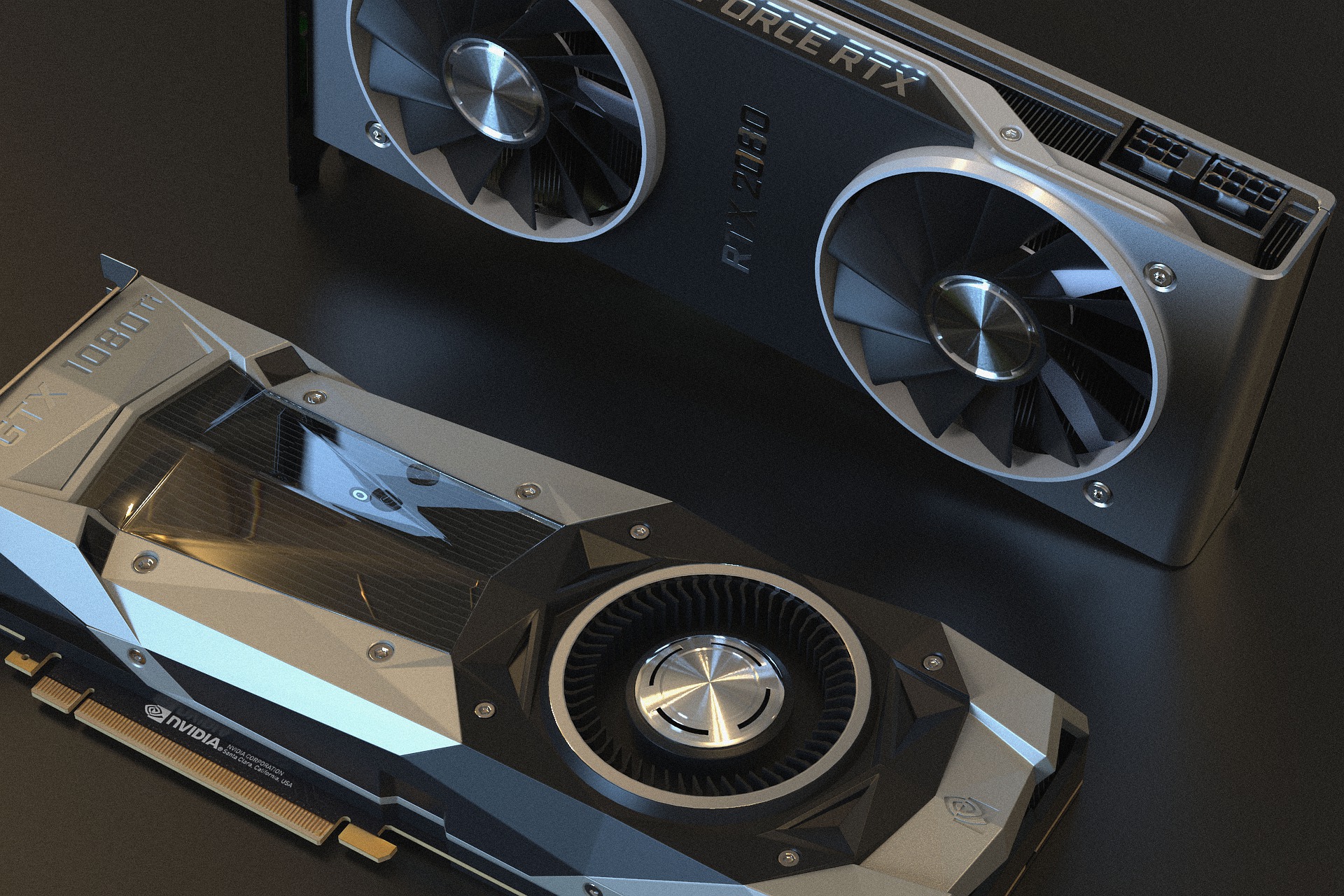What is a graphics card and do I need one?
A graphics card or graphics processor (Graphics Processing Unit or GPU) is an additional processor for your computer. Your computer already has a processor (CPU) to do the most important functions. As we’ve said before, it’s like the brain of the computer. The GPU is like an extra brain that is designed for only one specific purpose – for rendering graphics.
Why might I need one?
If you want to do anything that involves your computer rendering complex 3D graphics, such as playing modern games, 3D modelling or video editing and processing, you will probably need a graphics card. Get a graphics card only if you know you need it – GPUs can get very expensive, sometimes costing more than the rest of the computer put together. They are also power intensive and they generate substantial heat under load. However, if you need one, nothing else will be as good.
How do I know if I need one? And how is my computer putting out graphics if it doesn’t have one?
Any computer that renders any sort of graphics has some kind of GPU. Most (but not all) modern CPUs have what we call an integrated GPU – a basic GPU located within the CPU housing. This will provide basic graphics processing abilities, good enough for most desktop applications, web browsing, watching videos or even light games. This will be sufficient for anyone who doesn’t have a specific need for a dedicated GPU.
You will know you need one if you have a specific use case for one. Use cases include:
- Modern PC gaming
- 3D modelling & rendering
- Intense Photoshop work (not needed for basic Photoshop work)
- Video editing
- Running more than 2 monitors at once
If you don’t need to do any of these, you probably don’t need a GPU.
Can I fit one to my computer?
That depends. If you have a desktop computer that has a free PCIe 16x slot, you probably can. A few words of warning though – if you have a prebuilt desktop from a major manufacturer, such as Dell, HP etc, they sometimes use bespoke parts that only fit their computers. This might cause you trouble if you want to add a GPU. If you can find out what motherboard is in your computer (for example, by installing an app like CPU-Z), you can look that up to see what slots it has available. Most computers built by specialist PC builders will have the capacity for a GPU to be installed. The manufacturer or system builder should be able to tell you what motherboard was installed when your computer was made and will be able to advise you what to do next. Also be aware that GPUs are power-intensive components, so the power supply currently in your desktop computer may not be powerful enough.
If you have a laptop, you will almost certainly not be able to retroactively install a GPU. However, if you have a modern laptop, you might be able to add an external GPU that you only plug in when you need it.
OK, I think I’m going to get one.
Hold on, there is something else that I haven’t told you about yet. The combination of the 2020-2022(?) COVID pandemic and the rise of cryptocurrency has caused a number of problems with the supply of GPUs. Put simply, they are now selling for more than double what they should be costing, with prices ranging from over £100 for something like a 1030 (which should be a £30 GPU) to around £600 for a mainstream standard GPU like the RTX 3060 (which should cost only £329) to well over £2000 for a 3090 (which should cost about £1400).
WHAT?????
Yes, sorry. Gaming on a PC has become much, much more expensive than it used to be as a direct result of the pandemic and shortage of graphics cards. We all hope the prices will return to sane levels soon, but for the foreseeable future, it will simply not be affordable for most people.
Are there any alternatives?
If you want buy or build a desktop gaming PC but you do not want to buy an expensive GPU right now, one compromise people are making is looking at making use of CPUs that have more advanced GPUs integrated into them. These processors are sometimes referred to as APUs (Accelerated Processing Units). Although they are no match for a standard GPU like the RTX 3060, they are a step up from regular integrated GPUs and will be able to handle gaming better. They also work excellently as traditional CPUs. Some people are choosing computers with APUs (such as the AMD Ryzen 5 5600G or Ryzen 7 5700G) which will work as decent GPUs on their own while still allowing you to add a discrete GPU at a later date when they (perhaps?) get a bit cheaper to get the full graphical performance of a gaming PC.
Happy New Year, everyone.
James


Comments are closed